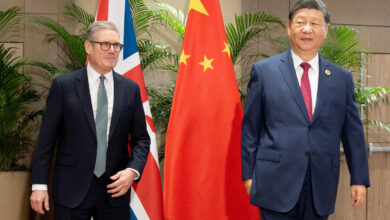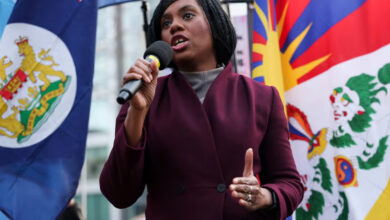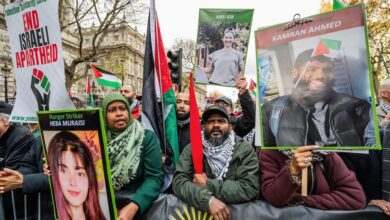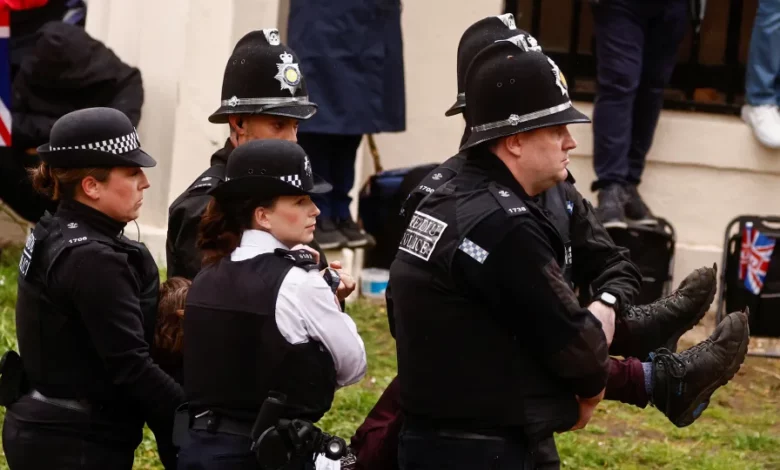
A senior UK government minister has defended the actions of the Metropolitan Police during the anti-monarchy protests in London on Saturday, saying officers had to make “tough calls” during the coronation of King Charles III in a day which saw 52 arrests.
It comes after the much-maligned Metropolitan Police force faced criticism for what many said was a heavy-handed approach toward demonstrators. Several opposition lawmakers and human rights groups have condemned the police’s actions.
However, UK culture secretary Lucy Frazer said that, while the right to protest remains “really important” in a democracy, tactics by demonstrators have shifted in recent years to interrupt people going about their daily lives.
She told the BBC that officers had to make “tough calls” on a case-by-case basis, while taking into consideration the significance of the occasion on Saturday.
Frazer said the police were tasked with balancing people’s right to protest with overseeing an international event on the world stage.
Criticism of the Metropolitan Police, the UK’s largest force, comes amid growing concern over the increase in police powers to stifle dissent in Britain, following the recent introduction of controversial pieces of legislation.
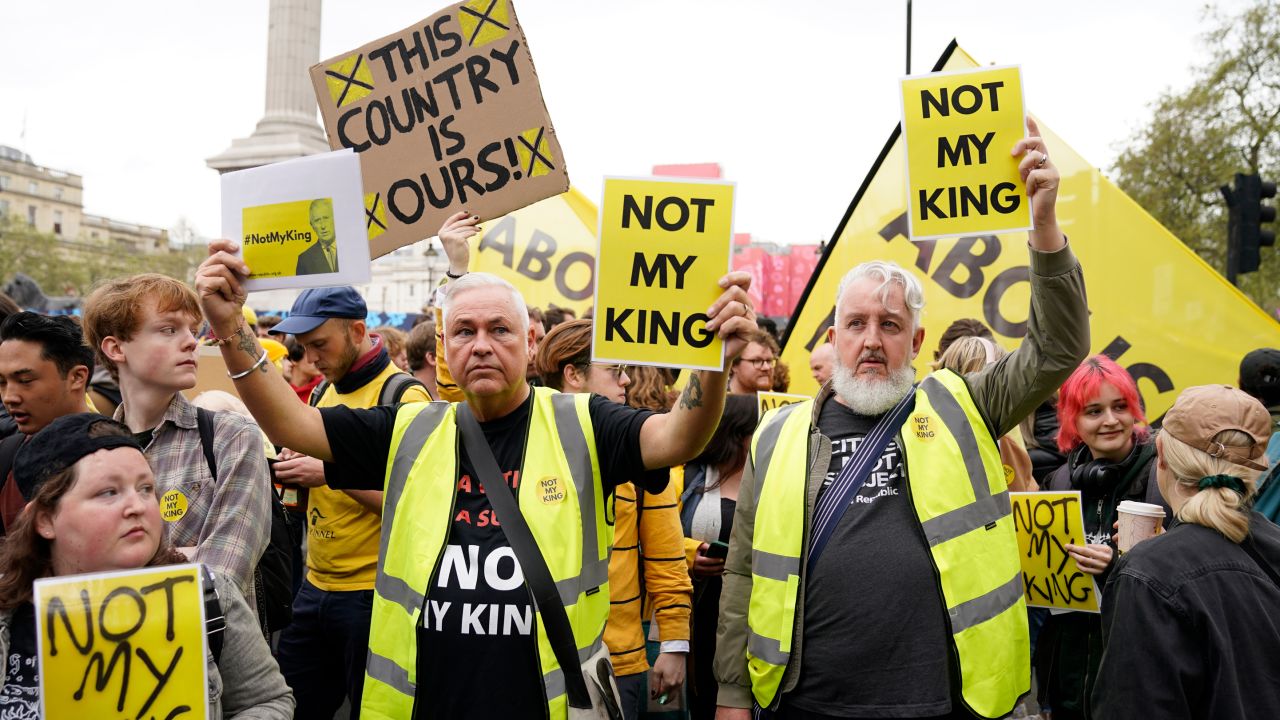
In the days leading up to the historic event, the force said its “tolerance for any disruption, whether through protest or otherwise, will be low,” adding: “We will deal robustly with anyone intent on undermining this celebration.”
Thousands gathered in central London on Saturday to celebrate the once-in-a-generation occasion. But it also drew demonstrators, with protesters wearing yellow T-shirts booing and shouting “Not My King” throughout the morning.
Republic, Britain’s largest anti-monarchy group, told CNN Saturday that police – without providing any reason – arrested organizers of the anti-monarchy protest.
At around 7 a.m. (2 a.m. ET) police stopped six of Republic’s organizers and told them they were detaining and searching them, Republic director Harry Stratton said.
“They didn’t say why they were arresting them. They didn’t tell them or us where they were taking them. It really is like something out of a police state,” Stratton said.
Graham Smith, the chief executive of Republic, was among those detained. He was later released from police detention.
“I have been told many times the monarch is there to defend our freedoms. Now our freedoms are under attack in his name,” Smith said on Twitter.
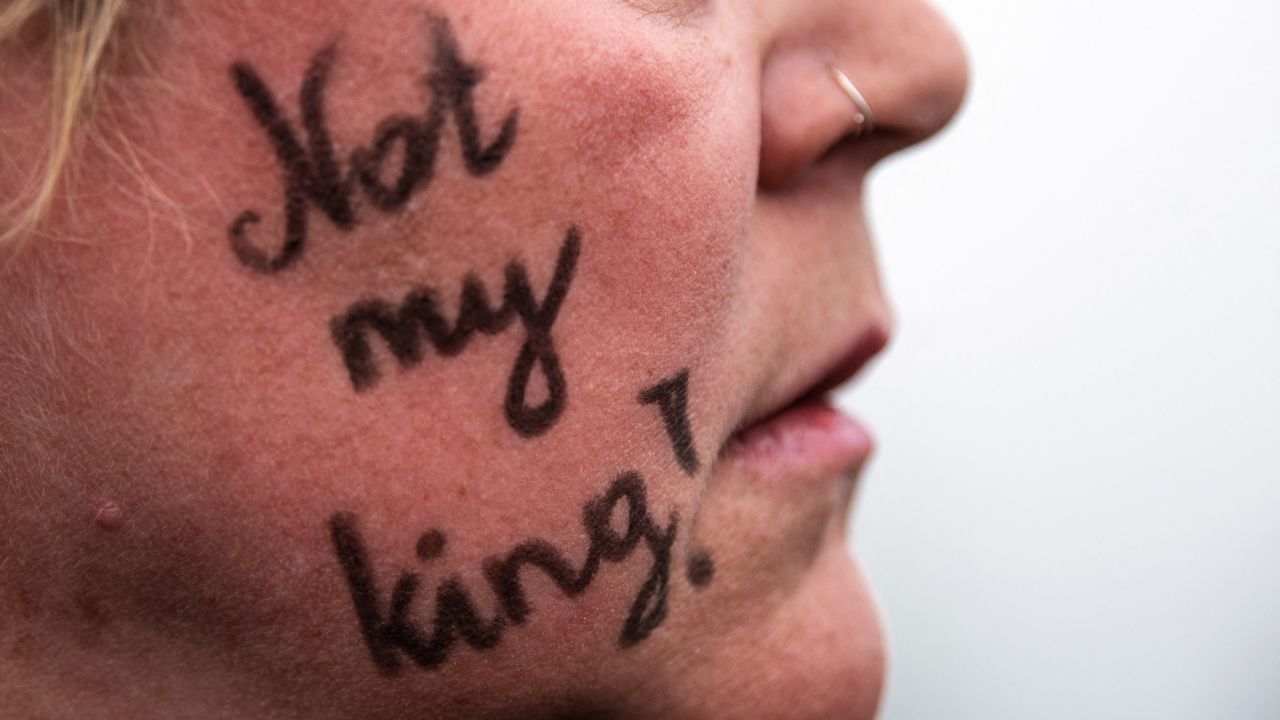
Labour lawmaker Chris Bryant posted on Twitter Saturday: “Freedom of speech is the silver thread that runs through a parliamentary constitutional monarchy.”
Jess Phillips, also a Labour lawmaker, said on Twitter: “Our nation and our King is not so fragile as to not be able to take harmless protest of a different view.”
UK director of Human Rights Watch, Yasmine Ahmed, described the police’s actions as alarming and “something you would expect to see in Moscow, not London.”
The Met said arrests were made on Saturday for offenses including affray, public order offenses, breach of the peace and conspiracy to cause a public nuisance.
Defending the force’s actions, Commander Karen Findlay said that, while they “absolutely understand public concern,” police also “have a duty to intervene when protest becomes criminal and may cause serious disruption.”
Members of environmental activist group Just Stop Oil were also arrested on The Mall outside Buckingham Palace, the UK’s PA Media news agency reported, adding that a large group of the protesters were seen in handcuffs.
According to PA, Animal Rising said some of its supporters were apprehended on Saturday while at a training session “miles away from the coronation.” A spokesman for the campaign group, Nathan McGovern, described the arrests as “nothing short of a totalitarian crackdown on free speech and all forms of dissent.”
CNN’s Niamh Kennedy, Christian Edwards, Lindsay Isaac, Allegra Goodwin and Xiaofei Xu contributed to this report.

